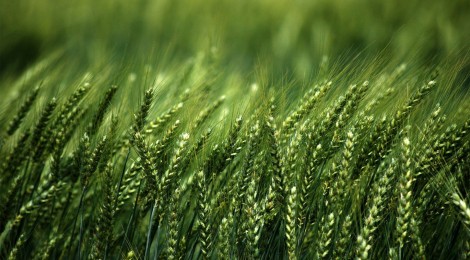
Weeds
I have been really thinking a lot about some of the insights from Bishop J’s sermon a few weeks ago, “Navigating the Weed”, on the Parable of the Weeds and the Wheat from Matthew 13. In the parable, Jesus tells a story about someone who plants wheat in a field. But, while no is looking, some agricultural villain sneaks in and plants weeds in the field too. And so the wheat and the weeds all grow up in the field together, rather inefficiently. So one of the field workers asks the owner if she should pull up the weeds in the field. And the owner says that the weeds and the wheat will all be sorted out at harvest time and not before. To pull up the weeds now would risk uprooting the wheat.
I have always been uncomfortable with this parable because I always think of it in relation to a Christian teaching I was taught as a kid which emphasizes heaven and hell–that there is a happy place up above reserved for people who “have accepted Jesus Christ as their personal Savior” (aka wheat people) and a fiery, torturous place down below for everyone else (weed people). And, at the end of times, the good people will be separated from the bad people and placed in their respective places.
So I appreciated Bishop J’s fresh take on the parable. Instead of the wheat and weeds being different people, he imagined the entire field as a person. I like this because I have always found people–especially myself–to be much more complicated than just good or evil. Indeed, each of our souls contains the good wheat of God and the evil weeds that were planted when no one was paying attention.
Now, as bad as I am with plants, I know that people do weed their gardens. And, for the most part, weeding doesn’t cause much damage to the plants that you actually want to grow. So the owner of this field strikes me as a bit overprotective of her wheat, preferring that it grow inefficiently and imperfectly rather than allow a single good plant to be uprooted. And this is how we are to understand God’s relationship with each of us. God sees such value in the good that grows within us that God would not risk its damage just to get rid of the bad. The bad will be dealt with, but only later, when the precious good has born all its fruit.
I love the image of God gazing upon my overgrown, weedy field of a soul and, rather than obsessively wanting to weed out the faults and failures of my life, God focuses on the good, fertile saplings and buds within me that have the potential to flower and bear fruit. Today I likewise invite you to imagine yourself–with all your shortcomings and self-centered ways–and imagine God looking at you, seeing through all that is sinful and imperfect, and smiling at all the God-planted potential within you for love, justice, and courage.
But don’t stop there. Take some time to also think of someone close to you–perhaps close because you spend a lot of time with them or close because you cannot forgive them. And try this week, when you find yourself gazing at their weediness, to imagine the precious wheat amidst the weeds of their soul. Observe the fact that God has not given up on them, has not even risked uprooting their weeds because God holds so precious and so dear the goodness and potential that is within their soul.
There was one more thing in Bishop J’s sermon that I appreciated a lot. He talked, not just about individual people as fields, but he talked about whole peoples, whole societies, as fields, full of both weeds and wheat. And in our disputes, in our generalizations and stereotyping and punishing and avenging and warring, we so often try to pull up the weeds without regard for the collateral damage of the wheat. I can’t help but think of the way in which the violent, rocket-firing weeds of Palestine are all intertwined with the roots of Gaza’s children and mothers and brothers. And how the hawkish, bulldozing, tank-wielding weeds of Israel are tangled in with the roots of Israel’s infants and fathers and sisters. When we try to violently pull up the weeds of our enemies, we inevitably kill the peace-seeking wheat alongside. So God challenges us to look at our enemies, knowing that there is precious goodness there that may perish in the weeding.
May we seek wheat amidst weeds. And may this be more than a spiritual exercise for us. Indeed, may our wheat-seeking wage peace in our souls, in our families, in our communities, and in our world.
Don’t miss the last two weeks in Bishop J’s sermon series “Dealing with the Weeds” ending on August 10! Sundays at 10:30am.
